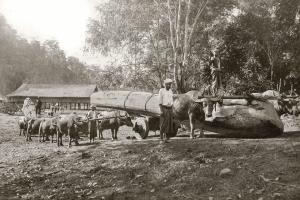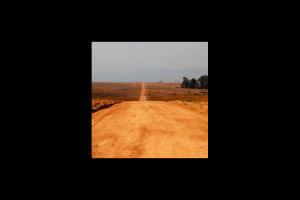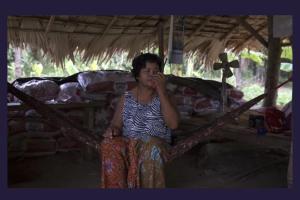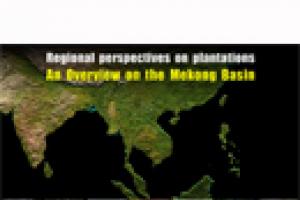Palm Oil
The oil palm tree is native to West Africa. It is an important tree for forest-dependent communities, their cultures and their economies. However, large-scale oil palm monocultures for industrial production (oil and agrofuels) have been driving deforestation and land grabbing in Southeast Asia. More recently, oil palm monocultures are also driving destruction in Africa and Latin America.
Bulletin articles
22 September 2025
Seja no Brasil, em meio a monocultivos de eucalipto, ou na Tailândia, cercada por plantações de dendê, as mulheres estão na linha de frente da resistência a esses projetos que exploram e devastam a terra em busca de lucro. Ainda que em contextos diferentes e com particularidades culturais específicas, esses projetos ameaçam a autonomia, os corpos e a cultura dessas mulheres de forma muito parecida. E a resposta que elas dão também parte de uma base comum: a resistência baseada nos laços comunitários e nas raízes ancestrais. É isso que nos contam duas ativistas camponesas em luta pela terra, cada uma de um desses países.
Bulletin articles
23 March 2022
British firms not only controlled 80 per cent of the established ‘logging lands’ in Thailand, but they also influenced the establishment of the Royal Forest Department, which came to have total power over the nation’s forests. Massive land grabs and various colonial laws made half the country’s territory into a colony of the central state.
Bulletin articles
23 March 2022
Colonial and anti-colonial movements’ have deeply shaped the patterns and impacts of concessions in SE Asia. In some cases, communities have experienced dispossession through land grabs dressed as concessions. In others, concessions are part of a re-concentration of land holding. Either way, the concession model fits well with ideologies of modernisation.
Other information
23 August 2017
Other information
23 May 2007
Bulletin articles
29 December 2006




